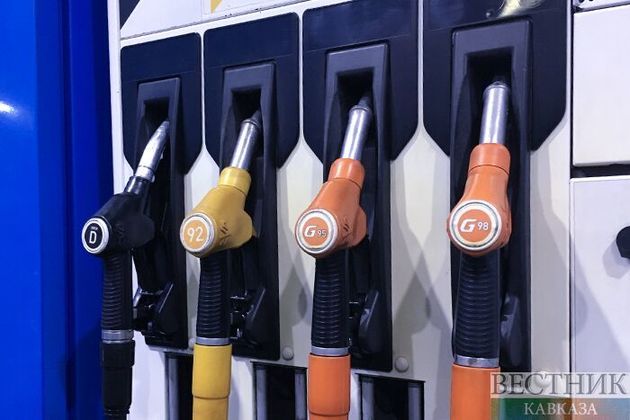The oil and gas industry is very influential on the automotive sector. Globally, 99% or 1.4 billion cars that drive are conventional cars with internal combustion engines (ICE) that consume fuel. (Setiawan, 2021). However, along with the development of the times until the 21st century, the trend of electric vehicles is increasingly dominant as an effort to renew carbon emissions which have an impact on environmental pollution so that electric vehicles continue to be developed rapidly until now and in a few years later, the electric vehicles will replace the conventional vehicles that still using an internal combustion engine (ICE) which still consumes fuel.
As Modern Diplomacy writes, it will have an impact on global oil demand which will decrease. The world’s oil demand is predicted to decrease drastically, it is even estimated that it will fall by up to 70%. It is known, currently, the largest oil imports account for 1.5% of China’s GDP and 2.6% of India’s GDP (Dananjaya, 2020). If electric vehicles are able to occupy a third of the market by 2040, this could lead to a decrease in fuel demand by as much as 9 million barrels per day, or about 90% of production in Saudi Arabia every day (Aszahri, 2017). Therefore, with the development of times and technology from year to year, electric vehicles are created in the world currently, it is true that electric vehicles were created as a good form of effort for the sustainability of our lives in the world, because electric vehicles, air pollution from conventional vehicles that we usually get is bad, but when electric vehicles are present the environmental pollution due to carbon emissions is reduced. One form of environmental pollution is the pollution released by conventional vehicles that still use fuel. On the other hand, the oil and gas industry is threatened by world oil demand. So that the oil and gas industry has the potential to reduce world oil demand, if the oil and gas industry cannot look for opportunities in the current and the future technology era, it will be very risky for the industry.
Although in the previous 21st century, energy, especially oil, was needed everywhere as the driving force for daily human activities such as transportation, delivery of goods, sanitation, water systems, agriculture, and construction. However, when the world enters the 21st century, the world is slowly changing its energy management to minimize carbon emissions, where this increase in emissions is due to the high world carbon production which in turn harms the environment, and disrupts human daily activities due to poor air quality. Therefore, with the competition between electric vehicles and oil production in the 21st century, this phenomenon can be an opportunity taken, which with the existence of electric vehicles, can adversely affect the environment. Moreover, with the existence of electric vehicles, it is suitable with vision and mission of the Paris Agreement in reducing Greenhouse Gas emissions by 29% by 2030 without foreign intervention and targeting the use of renewable energy by 23% by 2025, which shows that each country that ratifies the Paris Agreement must be independent in reducing carbon emissions in their country as a strategy to create the world with a clean environment. As for the Paris Agreement, it emphasizes five points that must be complied by ratifying countries including mitigation efforts by reducing emissions quickly, a transparent carbon accounting and emission reduction system, seeking to strengthen the ability of countries to overcome the negative impacts of climate change, implementing recovery efforts that caused by climate change, and providing assistance in the form of funding for countries to build green and sustainable economies (Windyswara, 2019). Therefore, with the five agreed points of the Paris Agreement, indirectly, the existence of electric vehicles now reflects the five points mentioned above. Research from the European Energy Agency explains that carbon emissions produced from electric vehicles are about 17-30% lower than electric vehicles that use gasoline (European Environment Agency, 2018). In addition, the presence of electric vehicles, it can minimize dependence on energy supplies from other countries because electricity is a domestic energy source. So far, countries are very competitive to fulfill their country’s oil supply which can lead to a peak oil situation, which is a condition where the oil production is at its maximum point in the future.
How about Gasoline? Can Gasoline Survive in the Midst of the Existence of Electric Vehicles?
Indeed, with the high production of electric vehicles in the 21st century, it could have an impact on oil production. This causes global oil demand to decline and the use of fuels such as gasoline begins to slowly decline. So it can be a challenge how oil suppliers can play their role in preparing other plans that are more sustainable in the long term that is not only focused on fueling a vehicle but can maximize in creating an item in which oil and gas can be the main driver of the machines besides vehicles. In addition, the role of gasoline can be maximized in other sectors as well as in the manufacture of raw materials for goods, the chemical industry which procedures several construction products, sources of polymer production, and other productions that require petroleum in the management of a product. Therefore, with the current production of electric vehicles, it does not make the electric vehicles become a threat if the innovation keeps on developing, technology continues to improve, so the fuel is still needed and important.






